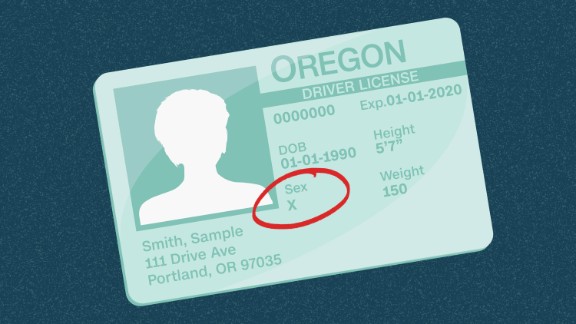In a controversial move, the Florida Department of Highway Safety and Motor Vehicles has instituted a rule prohibiting transgender individuals from changing the gender marker on their driver’s licenses. The rule, not mandated by any state law, aims to safeguard the “security and reliability” of government-issued identification, according to Robert Kynoch, FLHSMV deputy executive director.
This decision, enacted without legislative approval, has drawn criticism from various quarters, with concerns raised about its potential impact on the transgender community. Kynoch’s memo, released on Friday, contends that permitting individuals to alter their license gender markers based on internal gender identity undermines the purpose of identification records.
The memo explicitly warns that individuals misrepresenting their gender assigned at birth may face “criminal and civil penalties,” potentially resulting in the suspension or revocation of their driver’s licenses. The move has been denounced by several Florida Democrats, who perceive it as the “criminalization of trans people.”
State Representative Anna Eskamani, an Orlando Democrat, criticized the rule as part of Governor Ron DeSantis’ broader agenda, stating, “This is another gross example of Gov. Ron DeSantis weaponizing every state agency for his cruel agenda of attacking trans people.”
Eskamani expressed a commitment to fighting against attacks on the LGBTQ+ community and sought clarity on how affected community members should proceed in light of the new rule.
The rule introduces an additional requirement for individuals seeking a gender marker change, mandating them to provide “supporting documents” as proof of their biological sex. According to the FLHSMV memo, the term ‘gender’ is equated with ‘sex,’ understood as determined by innate and immutable biological and genetic characteristics.

Read more:
- California Lawmaker Proposes Speed Limit Technology to Curb Road Deaths
- Tragedy Strikes as Young Dancer Dies from Mislabeling of Peanuts in Cookies
- New Concealed Carry Law Denied by Another Northern California Count
- U.S. Takes Action to Safeguard Whales Around Offshore Wind Farms
Critics argue that this requirement raises questions about privacy and the potential invasion of individuals’ personal information. Eskamani posed a pointed question, asking if officials would be checking people’s genitals, highlighting the sensitivity and potential intrusiveness of the verification process.
Florida Democratic Party Chair Nikki Fried condemned the rule, asserting that “Florida Republicans’ obsession with trans people has to stop.” Fried criticized the prioritization of such policies over pressing issues like the property insurance crisis and rent hikes.
Responding to the backlash, an FLHSMV spokesperson issued a statement clarifying that the rule pertains specifically to gender changes when replacing a license, not when obtaining a newly issued license. The department argued that expanding its authority to issue replacement licenses based on internal gender identification would be violative of the law and would not enhance the security and reliability of Florida-issued licenses.
However, the controversy is far from over, as a bill currently progressing through the Florida House seeks to replace the term “gender” with “sex” on applications for driver’s licenses and ID cards. This proposed legislation would require the inclusion of birth sex, instead of gender identity, on all such documents.
The ongoing debate underscores the broader societal conversations surrounding gender identity, privacy rights, and the responsibilities of state agencies. Advocates for LGBTQ+ rights argue that such measures, targeting the transgender community, contribute to an unwelcome atmosphere of discrimination. Critics of the rule view it as part of a larger pattern of legislative efforts that they deem transphobic.
As the rule faces scrutiny and potential legal challenges, it signals a contentious intersection between identity rights, privacy concerns, and government regulations, sparking a broader dialogue about inclusivity and equal treatment for all citizens. The outcome of this debate may have lasting implications for policies addressing transgender rights and representation in government-issued documents not just in Florida but potentially across the United States.



